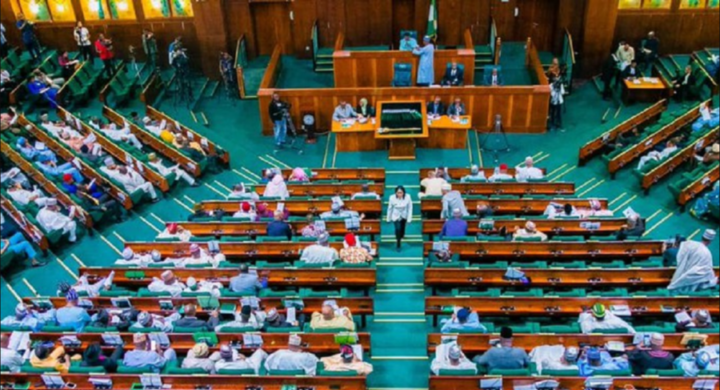The House of Representatives has intensified efforts to ensure that private companies across Nigeria comply with the nation’s health insurance regulations, in a move aimed at expanding universal health coverage and improving access to quality healthcare for workers.
The resolution followed a motion moved during plenary, where lawmakers expressed concern over the widespread disregard for mandatory employee health insurance provisions by many private organisations. They noted that despite the establishment of the National Health Insurance Authority (NHIA) Act, which mandates all employers with more than five staff members to provide health coverage, compliance levels remain critically low.

Speaking during the debate, the Chairman, House Committee on Healthcare Services, Hon. Amos Magaji, stated that enforcing health insurance compliance in the private sector has become a matter of national urgency. He emphasised that the objective is not only to protect the health and wellbeing of Nigerian workers but also to strengthen the overall healthcare system.
Magaji explained that the NHIA Act of 2022 was designed to make health insurance coverage compulsory for all citizens, with employers expected to register their workers under accredited Health Maintenance Organisations (HMOs). However, many companies have failed to comply, leaving millions of employees without any form of health protection. “The law is clear, yet compliance has been weak. The House must act to ensure that private employers take responsibility for the welfare of their workers,” he said.
The lawmaker noted that enforcing the Act could drastically reduce out-of-pocket health expenditures, which currently account for over 70 percent of total healthcare spending in Nigeria. “When people can access healthcare without fear of financial ruin, productivity rises, families are healthier, and the nation grows stronger,” he added.
In adopting the motion, the House resolved to direct the National Health Insurance Authority to carry out a comprehensive compliance audit of private sector organisations and submit a detailed report within three months. Lawmakers also called on the Ministry of Labour and Employment to collaborate with the NHIA and relevant regulatory bodies to develop strict enforcement mechanisms, including penalties for defaulters.
The House further mandated its Committee on Healthcare Services to oversee the process and ensure that the NHIA takes immediate steps to enhance awareness among employers and employees. Lawmakers stressed the need for sensitisation campaigns that would educate businesses about the long-term benefits of enrolling their staff in health insurance schemes.
Reacting to the resolution, Dr. Kelechi Ohiri, Director-General of the NHIA, commended the National Assembly for its proactive stance, stating that the Authority has already begun implementing measures to increase compliance. “We have initiated digital registration systems for employers and employees to make the process more efficient and transparent. Enforcement, however, remains a challenge, and legislative backing like this gives us the strength to act,” Ohiri said.
He added that the NHIA is also working with the Corporate Affairs Commission (CAC) and the Federal Inland Revenue Service (FIRS) to link corporate registration and tax compliance to health insurance enrolment, ensuring that businesses cannot evade their obligations.
Industry experts and labour unions have welcomed the move by the House, describing it as timely and necessary to address inequities in healthcare access. The Nigeria Labour Congress (NLC), in a statement by its spokesperson, Comrade Benson Upah, said that millions of Nigerian workers in the private sector currently lack any form of health coverage, exposing them to financial hardship in times of illness. “This step by the House of Representatives could be a game-changer if backed with effective implementation and sanctions,” he said.
The Association of Health Maintenance Organisations of Nigeria (AHMCON) also expressed support for the enforcement plan, noting that compliance will not only improve employee welfare but also stimulate growth within the health insurance industry. “With stronger enforcement, more companies will join the formal health insurance space, enabling providers to expand coverage and invest in quality care delivery,” AHMCON President, Dr. Leke Oshun, stated.
However, some private sector operators raised concerns about the potential financial burden the policy might impose on small and medium-sized enterprises (SMEs). They urged the government to adopt a phased approach that would allow smaller firms to gradually implement the policy without jeopardising their financial stability.
In response, Magaji clarified that the NHIA Act already provides room for flexibility and government support to encourage participation. “The goal is not to punish businesses but to protect workers and promote a healthier, more productive workforce,” he explained.
Health economists have consistently argued that expanding health insurance coverage is essential for achieving Universal Health Coverage (UHC) by 2030. According to data from the World Health Organization (WHO), over 90 million Nigerians currently pay out of pocket for healthcare services, a situation that often leads to catastrophic health spending and pushes families into poverty.
The renewed legislative push is expected to close this gap by making compliance a core part of corporate responsibility. With the House resolution gaining traction, stakeholders anticipate a stronger collaboration between government agencies and the private sector to create a sustainable healthcare financing system.
As the implementation plan unfolds, experts insist that transparency, accountability, and robust monitoring will be critical to success. They also stress the need for continuous review of the NHIA framework to adapt to evolving industry realities and economic conditions.
In conclusion, the House of Representatives’ resolve to enforce health insurance compliance in the private sector represents a crucial milestone in Nigeria’s pursuit of equitable healthcare access. If effectively implemented, the initiative could transform the nation’s health system, safeguard workers’ welfare, and strengthen the social contract between employers and employees — ensuring that no Nigerian worker is left without essential health protection.
Support InfoStride News' Credible Journalism: Only credible journalism can guarantee a fair, accountable and transparent society, including democracy and government. It involves a lot of efforts and money. We need your support. Click here to Donate
